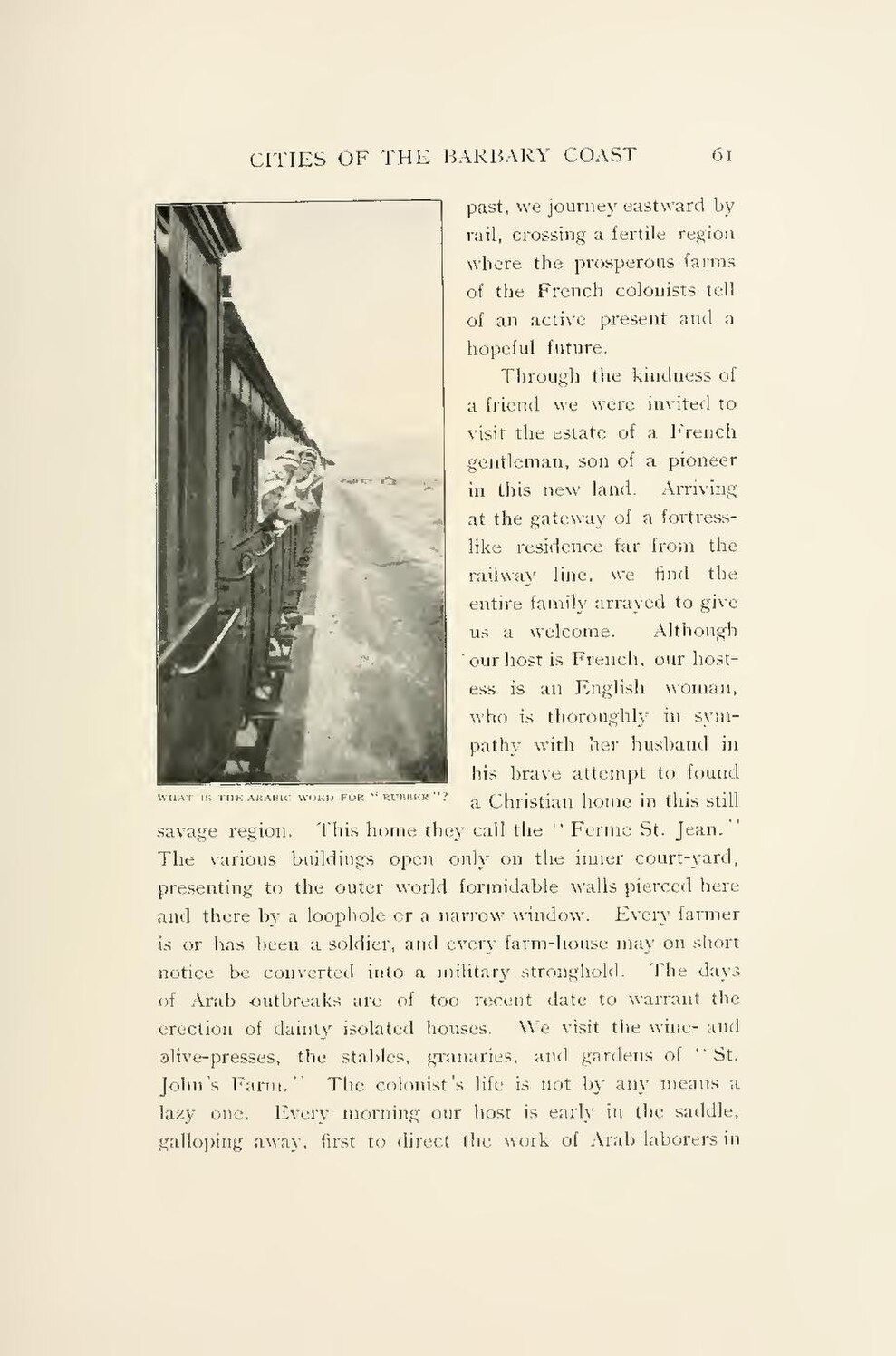past, we journey eastward by rail, crossing a fertile region where the prosperous farms of the French colonists tell of an active present and a hopeful future.
An image should appear at this position in the text. To use the entire page scan as a placeholder, edit this page and replace "{{missing image}}" with "{{raw image|The Burton Holmes lectures; (IA burtonholmeslect04holm).pdf/73}}". Otherwise, if you are able to provide the image then please do so. For guidance, see Wikisource:Image guidelines and Help:Adding images. |
WHAT IS THE ARABIC WORD FOR "RUBBER"?
Through the kindness of a friend we were invited to visit the estate of a French gentleman, son of a pioneer in this new land. Arriving at the gateway of a fortress-*like residence far from the railway line, we find the entire family arrayed to give us a welcome. Although our host is French, our hostess is an English woman, who is thoroughly in sympathy with her husband in his brave attempt to found a Christian home in this still savage region. This home they call the "Ferme St. Jean." The various buildings open only on the inner court-yard, presenting to the outer world formidable walls pierced here and there by a loophole or a narrow window. Every farmer is or has been a soldier, and every farm-house may on short notice be converted into a military stronghold. The days of Arab outbreaks are of too recent date to warrant the erection of dainty isolated houses. We visit the wine- and olive-presses, the stables, granaries, and gardens of "St. John's Farm." The colonist's life is not by any means a lazy one. Every morning our host is early in the saddle, galloping away, first to direct the work of Arab laborers in
